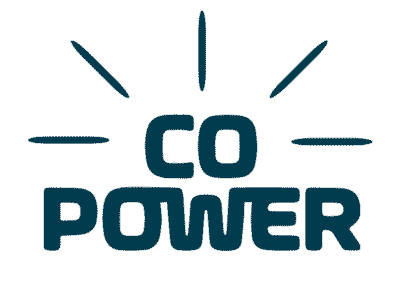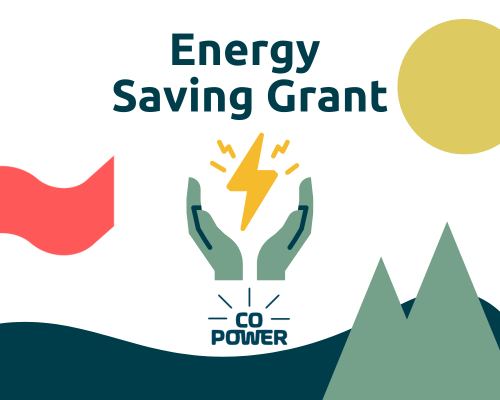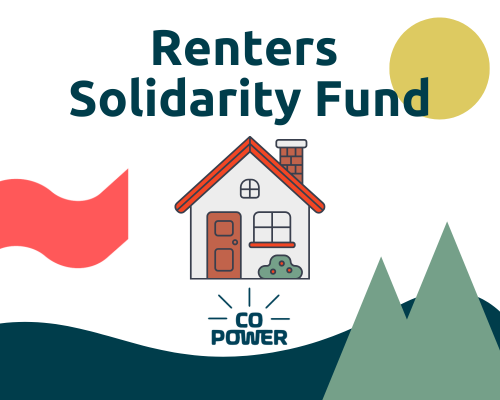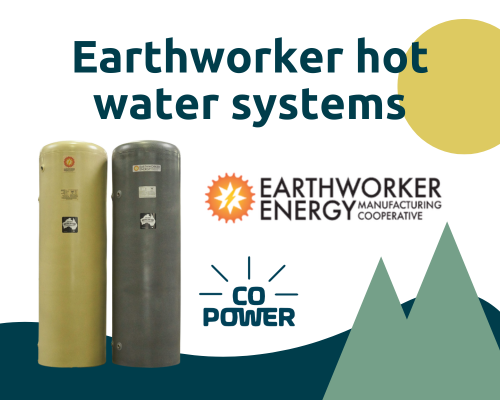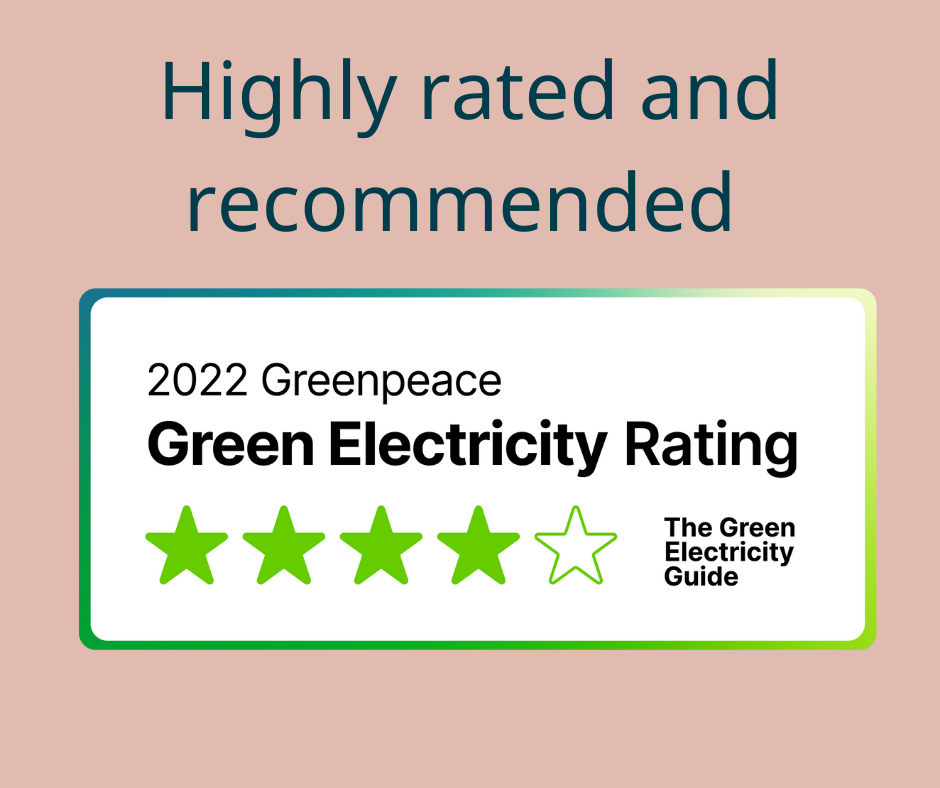
Green Electricity Guide Breakdown for Customer Members
February 16, 2022
Refer a comrade
April 14, 2022Cooperative Power was founded in 2018 to put real power back in peoples’ hands.
We built our cooperative to give people power over their energy bills, rebuild economic democracy across Australia, and fight the climate crisis.
We welcome your feedback on our participatory budget design for this year. If you have any thoughts or suggestions, email us at hello at cooperativepower.org.au. This is a draft document, so there are items we will tidy up in coming days.
⸺
2021: Our first democratic budget
In April 2021, we delivered our first ever democratic budget. That was when we only had a couple of hundred members.
We asked customer members to nominate projects that the cooperative should fund, held a workshop to discuss the projects and conducted an online vote to see what proportion of the cooperative’s budget we should allocate to each project.
Our members voted to reinvest 30% to cover the cooperative’s business expenses, liabilities and capacity-building. They also voted to support international climate justice with Union Aid Abroad – APHEDA, invest in solar infrastructure with the Energy Innovation Cooperative, build a workers’ strike fund and subsidise power bills for low-income people.
You can see how we allocated the budget on our SpendTracker.
We’ve grown tenfold since then and our democratic budgeting needs to grow to suit. So we’ve adopted a more robust, inclusive programme to empower more of our members to make more decisions.
⸺
Delivering this year’s democratic budget
This year, we’re taking our time to lay the groundwork and step through the budget slowly.
For many of our members, this will be the first time they’ve ever had a chance to decide what the future of a business holds and what its profits are best used for. Our customer members are what makes CoPower so great and your ideas are key to power us into the future.
We’re going to hold three workshops and two votes over three months to give every member the opportunity to have their say.
You can take part in as many or as few of these as you want. You’re not obliged to come to any workshops – and you will still be able to vote or go to any workshop if you’ve missed a previous one.
Save the dates for the online workshops and votes. We’ll email out links to the online workshops and the voting portal closer to each date.
- On Tuesday 12 April at 7:00pm AEST, we’ll have our first workshop launching the budget and discuss our investment strategy.
- Between the first and second workshop, we’ll run our first vote on the total funds allocated to running the cooperative and the total excess funds to put towards strategic priorities.
- On Tuesday 26 April at 7:00pm AEST, we’ll have our second workshop to explore the areas, e.g., international solidarity, investing green energy, economic support for those in need, etc., where the coop can distribute its excess funds.
- From 29 April to 10 May, we’ll conduct the second vote for customer members to decide the top 5 areas where we will ask for project proposals.
- From 17 May to 6 June, we’ll call for proposals from customer members, member organisation, and other not-for-profits for projects to fund.
- On Tuesday, 21 June at 7:00pm AEST, we’ll have our third workshop discussing each proposal. How this works will depend on the number of proposals received.
- From 24 June to 5 July, we’ll conduct our third vote ranking each proposal.
- On 12 July, we will announce the projects that will be funded.
- By 31 July, we will have reached agreement with successful organisations and issue the first payments to projects chosen by customer members. Projects will be funded when the necessary funding is available to disburse.
- On Saturday 13 August (date TBC), we’ll hold our annual general meeting with the final budget and results of the democratic budget setting process and presentations from people who have received funding.
If you have an idea or opinion no matter how small, we’re always listening and the power of CoPower comes from the ideas and energy of our customer members . The board can help you develop proposals or flesh out ideas. The most important thing is empowering you – not following a form.
This is all a learning experience. We’ll learn from what works – and what doesn’t – this year and make changes for the better next year. The bigger the cooperative gets, the better and deeper our democracy will be.
⸺
Where we get our money
Cooperative Power’s revenue comes from our partnership with Energy Locals.
The cooperative gets paid a $50 annual fee for every member we have subscribed through the Energy Locals local offer . We’re updating our commercial terms with Energy Locals and we’ll share further details when we can.
Given our recent growth in customer members, we don’t have a big reserve of funds available to allocate right away.
As a result, our budget is based on a projection over the next financial year, based on the number of members we have right now. While this might be risky, our priority is delivering on our promise to our members to deliver a participatory budget right now. This means projects we agree to support will only get paid out in instalments through the year.
We ask members to have patience and kindness with the cooperative in delivering the budget we all build together.
Over the next year, the cooperative will be investigating ways to grow and diversify our revenue.
⸺
Timeline
April |
|
12 |
First members’ online workshop – Launching our 2022 budget and investment strategy |
| Our first workshop will review how we spent last year’s budget and what did and didn’t work before discussing our investment strategy – the board’s view on how the cooperative can invest to grow and reach more members. Customer members will also have a chance to provide feedback on our draft rules for proposals below.
Customer members, between the two workshops, will have the chance to vote on the balance between funding project proposals in line with our values as a cooperative and funding the ongoing growth of the cooperative. |
|
13 |
Member vote on balance between funds towards running the cooperative and strategic priorities |
26 |
Second members’ online workshop – Setting our strategic priorities |
| Our second workshop will develop some potential strategic priorities for the budget. These will be the themes for the budget – like “growing the cooperative”, “international solidarity” or “building a just transition”. These themes will help members develop their proposals, as well as setting the proportion of the budget that will be allocated to the priorities. | |
29 |
Vote on CoPower’s 2022 strategic priorities |
| Our second vote will be on our strategic priorities for project funding and how big a slice of the budget each of the strategic priorities the second workshop agreed to get. | |
May |
|
10 |
Strategic priorities vote closes |
17 |
Call for proposals to fund community driven projects |
| Members now have the opportunity to put forward proposals they think the cooperative should fund. These could be specific projects or member organisations and other organisations that need support or they could be more general buckets that the board could distribute over the year when a time of need arises. | |
June |
|
6 |
Call for proposals closes |
14 |
Board meeting to finalise project proposals |
21 |
Third members’ workshop – Discussing project proposals |
| Our third workshop gives an opportunity for members who proposed projects to fund a chance to argue their case to the whole membership before they vote. | |
21 |
Vote on how we allocate the 2022 budget |
| Our second vote will be to support proposals from members for funding. Members will rank proposals under each strategic priority from most in favour to least in favour. | |
July |
|
8 |
Budget vote closes |
August |
|
13 |
Annual general meeting – Presenting the 2022 democratic budget |
⸺
Draft rules for proposals
- Cooperative Power’s mission is to address the climate crisis, inequality, and a decline in civil society participation by delivering environmentally-sustainable energy, democratising our economy and society, solving social and environmental problems cooperatively, and transitioning the community from fossil fuels.
- Cooperative Power’s values are self-help, self-responsibility, democracy, equality, equity, solidarity, honesty, openness, social responsibility and caring for others.
- Cooperative Power’s objectives are to:
- reduce carbon pollution to limit global temperature rise to 1.5 degrees Celsius and ensure all communities have access to clean air and a healthy environment,
- build and enhance civil society through growing membership-based, democratic organisations, and
- take back the commons and enable democratic ownership of our energy systems and accessible electricity for all.
- Some definitions used in these rules are:
- The board is the body that makes day-to-day decisions on the business of the cooperative and consists of appointees from each member organisation, a chair, secretary and up to two general board members appointed by the board. Each member organisation can also nominate a representative to observe board meetings.
- The investment strategy is a proposal from the board that outlines the minimum viable investment necessary in the continued solvent operation of the business and any investment in the sustainable growth and development of the cooperative.
- A strategic priority is an area of interest adopted by the customer members as a priority for the cooperative to focus on addressing over the next year.
- A projection is an estimation of the total revenue over the coming financial year based on the reasonable assumption of customer member growth.
- A budget measure is a proposal that has been adopted by democratic vote of the customer members and contained as a line item in the budget.
- A project proposal must include:
- a short title that summarises the project
- the proposing customer member’s name and contact details (if applicable)
- the name, ABN, and contact details of the not-for-profit organisation receiving the funding
- a summary of what the project is and why it is important
- how the project achieves one or more of CoPower’s strategic priorities
- a list of specific deliverables and how funding from CoPower would help deliver them, (if appropriate), and
- an estimation of how much funding will need to be provided to ensure the project’s success and a budget that breaks the project into activities, timeline, and expected costs per activity. This information will need to be submitted on the template to be provided by CoPower.
- If the proposed project is dependent on receiving funds from other sources, CoPower funds will not be provided until this funding has been secured. If the proposal is successful, CoPower funds can be counted as committed funds on other funding applications.
- CoPower must be notified within 1 month if the project is not going to achieve its outcomes by the agreed completion date.
- If there is unspent funds a request can be made to extend the project term or to spend these funds on a similar activity. The CoPower board can approve, at its sole discretion, this expenditure or request that the funds be returned.
- It is unlikely that a project will receive more than 25% of the cooperative’s funding allocation.
- Proposals cannot financially benefit member organisations of the cooperative.
- All project proposals recipients are required to provide a narrative report and financial acquittal within 1 month of the end of the project.
- The board reserves the right to reject any proposal that is inconsistent with the cooperative’s mission, values, principles, and objectives. Project proponents will be advised in writing of the reason for the rejection.
- Any unspent funds will be set aside for allocation at a subsequent meeting of customer members, which can include adding it to the next budget cycle.
- Only individual customer members will be eligible to vote on proposals. Member organisations and board members are not eligible to vote (except as customer members) but are able to make proposals and engage in workshops.
- No proposal can be for the current or future support of any single or group of candidates or political party in an election campaign.
